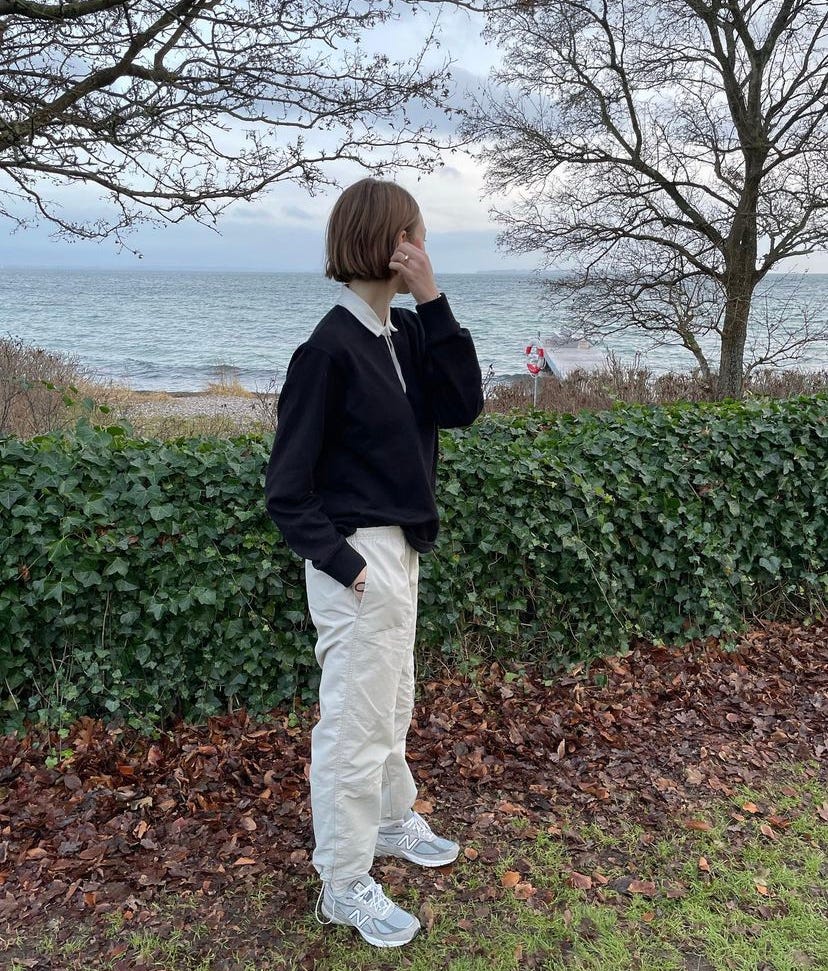This Weekend Edition of Ecstatic is by Erika Veurink. This month’s features are brought to you in partnership with Fuller Seminary.
At the start of every journal, I write a benediction. It’s usually a quote or a fragment, sometimes even just a word. I’m trying to set a mood—a prayer or the wash of a color, maybe pale blue. Under it, I write the start date, leaving an open dash for the day I finish the last page.
The word benediction, devout or formal invocation of blessedness, is joined by the Latin root, dictio, becoming something like “well-wishing.” That’s what it feels like every time I crack the spine of a notebook and record a passage—posturing toward hope.
My current notebook opens with this. “If the only prayer you ever say in your life is ‘Thank you’, it will be enough.” It’s a line from Meister Eckhart, a German theologian. The quotation in the journal before was from Annie Dillard. The one before that was a lyric of Prince’s.
All form is lost after my practice of inscription. There are pros and cons charts. Piles of numbers added in haste. Notes on prescriptions and visions of a cabin somewhere on a quiet green lake. Some pages are letters to ghosts. I try to practice gracious acceptance. Whatever I write, belongs.
In the slim book Ongoingness: The End of a Diary Sarah Manguso says, “to write a diary is to make a series of choices about what to omit, what to forget.”
I read the book years ago, at a time in my life buried beneath indecision and fatigue. I wanted to change my life. But the best I could do was record my monotonous days as an administrative assistant at the Christian school I’d graduated from only a few years prior. “Walked laps on the track while eating a salad with blueberries,” one entry reads. A couple pages later, “If I don’t leave, I think I’ll always wonder.”
At the time, I read exclusively from Psalms, a poetic book that spans the array of human emotions. In a sense, it’s David’s journal, his ongoing conversation with God and himself and the spinning spectrum of feeling. As a child in Sunday School, I practiced recording prayers of my own in a notebook. One teacher taught us to bind the pages we’d filled out with a clip. “There’s no reason to go back,” she said. “Once it’s written, it belongs to God.”
It’s rare that I revisit old journals. My sloping cursive makes it hard to decipher long passages. Instead I look for the lists, the underlined phrases. I save my collection of journals for some reason. Stacked under my bed, I’m comforted by what was once charged and how it has mellowed into an unreadable history.
“Keepers of private notebooks are a different breed altogether, lonely and resistant rearrangers of things, anxious malcontents, children afflicted apparently at birth with some presentiment of loss.” At least that’s what Joan Didion thought about keeping a journal.
Sarah Manguso ends Ongoingness with this. “Look, here we are, even now—,” the em dash reaches into the perpetually out-of-reach space between our perceptions and their permanence.
These days, my notebook exists as a space to pull at the particularly sticky thoughts, to see them outside my skull. They’re less intimidating there, easier to examine. You could say I’m rearranging.
Erika Veurink
Culture Writer
Erika writes a newsletter called Long Live, which features firsthand essays about (mostly) secondhand clothing. She is also the Brand Copy Lead at K18 Hair and has an MFA in Nonfiction Writing from Bennington College. She contributes to outlets such as The Cut, Vogue, AD, and Coveteur.
Thoughts on Erika’s article? Leave a like and share in the comments!









Thankful for the life and family Gid gave me. Staying in God’s Word and believing in His promises. I stumble, I question myself, I’m my own worst critic. I “journal” and it helps me better analyze problems, make decisions, chronicle gratefulness, abate moodiness - life. How freeing to be able to say on paper what I cannot verbalize. Funny how some brains work that way. Mine does!
What a wonderful use of journaling.And the Chronicle of gratefulness. I like too that you used the word Gid sometimes. By mistake. It's my son's name.